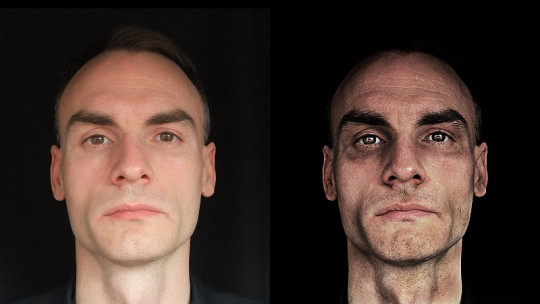Wendy syndrome refers to those people who focus their entire lives on the exclusive and unique care of certain people in their lives. Normally, this syndrome usually occurs in women who are dedicated to caring for their children and family.
In the next section of PsychologyFor, we will explain The characteristics, causes and treatment of Wendy syndrome , under a new perspective that is based on the idea that human beings are, in their very essence, helpful and caring. The deterioration of care and dedication arising from the heart creates the perfect breeding ground for the manifestation of this syndrome to flourish.
What is Wendy syndrome
Why is it called Wendy syndrome? To understand Wendy’s syndrome, we must first refer to the more well-known Peter Pan syndrome to which it owes its name and which corresponds to the childish behavior that certain people adopt in their lives by refusing to mature and grow. At the other extreme of this syndrome is the one that gives its name to this article: Wendy syndrome or Wendy complex. In this case, said nomenclature refers to those people who focus obsessively on the care and attention of a certain person or people Normally people with this syndrome end up caring for people with Peter Pan syndrome. Wendy syndrome is related to rescue woman syndrome or savior syndrome.

Characteristics of Wendy syndrome
What are the symptoms of Wendy syndrome? The characteristics that manifest themselves in people with this type of personality are the following:
- These are people who They focus their lives on caring for one or more people It generally occurs in women who focus on caring for their children and their partner.
- They take care to the extreme, usurping part of the freedom that these people need to, thanks to the impulse provided by good care, advance, grow and develop in their lives.
- They are very controlling people who do not tolerate things well beyond their control.
- By focusing their lives on this care, they feed on the benefits it brings them and they can feel lost when cared for people decide to embark on their own path
Causes of Wendy syndrome
Why does this syndrome occur? In itself, Caring for others is an essential quality of being human In motherhood and fatherhood, this quality and desire to take care of one’s own children, offering them all the best, is evidently manifested. Although this quality occurs more frequently in female mothers, it is a feminine quality present to a greater or lesser extent in all human beings, regardless of their gender.
The problem arises when this beautiful human quality is intertwined with one’s own personal shortcomings, generally related to a lack of self-esteem and personal worth and we turn loving and pure care into a refuge through which to feel useful and necessary to others True care for our loved ones presupposes accepting that, along with the necessary care, those cared for must be given sufficient tools to fend for themselves. People who suffer from Wendy syndrome engage in overprotective care that nullifies the person and deprives them of growing and developing in a balanced way. In this article, we talk about the Consequences of overprotecting children.
As previously mentioned, due to factors that are currently classified as cultural but that should be analyzed to what extent they are essential to the gender itself, it is usually much more present in women, although it is still present in men since, As mentioned, service and care for our neighbors is an archetypal human trait. Educational style, personality and other individual and social factors can fuel the manifestation of this syndrome. Next, we will see how to overcome the Wendy complex.

Wendy syndrome treatment
Let’s see how to overcome Wendy syndrome. To talk about how to approach Wendy’s complex, it is worth remembering, first of all and without the intention of entering into gender debates, that the human being in its very essence is nourished by serving and caring for others. Based on this, giving to children or one’s partner should be valued as something positive that substantially nourishes and unites the family. This includes the care of both his partner’s mother and her children, as well as the care that the man also gives to her family and the respect and care that the children offer to her parents.
Based on this, the deficiency and therefore the Wendy syndrome occurs when this mutual care becomes unbalanced, with a single person choosing to care for the family, not allowing any other care that comes from any other person. In this way, even at the cost of her physical and mental health and, derived from her excessive control, of the health of the people cared for, this person becomes dependent on this way of acting.
The treatment of this type of imbalance requires personal work with the affected person that allows them to see what part of their dedication is real, true and unconditional and, therefore, satisfactory and what other part is conditioned by unresolved internal issues that, in essence, violate the authenticity of her actions and subject her to obsessive, controlling and limiting behaviors The awareness of these two parts within herself and the conscious work with these aspects It will favor the withdrawal of negative aspects and their replacement by actions of personal care and listening and, with this, the delivery of true and unconditional love. For this awareness, a psychotherapy process with a qualified professional is recommended.
This article is merely informative, at PsychologyFor we do not have the power to make a diagnosis or recommend a treatment. We invite you to go to a psychologist to treat your particular case.
If you want to read more articles similar to Wendy syndrome: characteristics, causes and treatment we recommend that you enter our Personality category.
Bibliography
- Egea, MA (2009). Grow? Never again. Peter Pan and Wendy: two patterns of adolescent behavior. The Viceroy’s tower, (6, 2009/1), 105-113.








